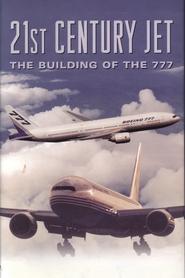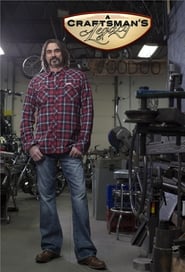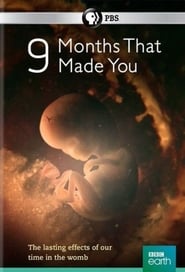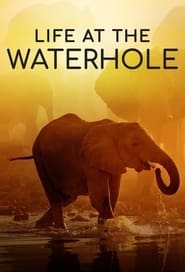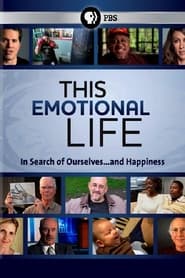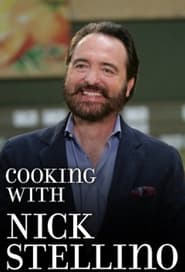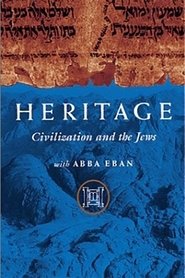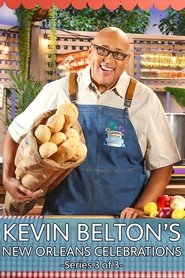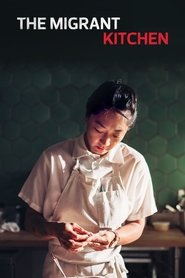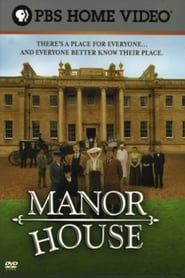Pbs TV Series - Page 31
-
Real Wheels
1993
Real Wheels
1993
There Goes a... is a collection of children's videos, also known as Real Wheels. Three episodes, "There Goes a Garbage Truck," "There Goes the Mail," and "There Goes a Rescue Vehicle", were released as a part of the short-lived "Dream Big" series. Each episode focuses on different transportation vehicles; however, one episode is reserved for Santa Claus, and another for roller coasters. Each is live-action, starring Dave Hood, and is sometimes accompanied by a sidekick, Becky Borg. The series of videos revolved around Dave in new jobs that center around the vehicles being featured but reminded kids that they were "just pretending for the day". While the most part of the videos focused on showing how the vehicles worked and what they can do, predictably Dave would get into trouble and say his catchphrase, "Oh, I shouldn't have done that!". -
21st Century Jet: The Building of the 777
1996
The Boeing Company develops their most technically advanced aircraft: the 777. From corporate conference rooms to factory floors, its extensive testing and first commercial flight, more than 10,000 people were involved in the creation of the new plane, assembled with parts from all over the world. -
A Craftsman’s Legacy
2014
A Craftsman’s Legacy
2014
In A Craftsman’s Legacy, host Eric Gorges goes on a quest to discover the true craftsmen in today's world. Traveling across the country, Gorges interviews the men and women responsible for carrying the tools, trades and traditions of fine craftsmanship into the 21st century. -
Search for Science
1967
Search for Science
1967
-
A Walk Through the 20th Century With Bill Moyers
1982
Exploring major events, personalities, and social customs that shaped the century, to rediscover the vivacity of the past. The first episode aired in 1982 on the short-lived CBS Cable network; the remaining episodes aired in 1984 on PBS. -
9 Months That Made You
2016
star 7Discover the thrilling story of how you were made, from the moment of conception to the moment of birth 280 days later. This breakthrough series follows the gestation process, using state-of-the-art CGI to reveal the most exquisite biological choreography found in nature. Across three episodes we chart how 100 trillion cells come together to make each of us a unique individual. The way you smile, the environments you thrive in, the color of your eyes – everything about you depends on an elaborate dance of biology that happens hidden away in the womb, all timed to precision. But by using the latest scientific research and advances in medicine, we can now reveal this hidden world in forensic detail. Zeroing in on milestones along the road to creation – where critical events in your miraculous assembly can change your life forever. -
NOVA Universe Revealed
2021
In this five-part series, NOVA delves into the vastness of space to capture moments of high drama when the universe changed forever. State-of-the-art animation gives us astonishing, photo-realistic glimpses of the birth of a star in a stellar nursery, the chaos created as two galaxies collide, and the power of a super-massive black hole as it flings a star across space so violently that it's still traveling 10 million years later. NOVA even takes viewers back on the ultimate time travel voyage, to witness the birth of space and time itself. Informed by huge advances in scientific understanding, the series brings us face-to-face with the most surprising characters in the cosmos and reveals how their fates are intertwined with our own. Take a ringside seat for the greatest show in the universe. -
Theater of The Mind Radio Drama
2009
Live, televised 1940's style radio drama... it's radio you can see, complete with actors, music and a crew of sound effects technicians, creating it all right before your eyes. -
Changing Planet
2022
Changing Planet
2022
Join conservation scientist Dr. M. Sanjayan on an ambitious seven-year natural history series documenting six of the planet's most threatened ecosystems and meeting the people fighting to restore the Earth’s delicate balance. On his journey he meets the inspiring scientists and communities working to bring about positive change. -
Stepping into Rhythm
0000
Stepping into Rhythm
0000
-
Life at the Waterhole
2021
star 8Explore the daily drama as African wildlife flock to a manmade waterhole rigged with cameras. Dr. M. Sanjayan and his team uncover the complex dynamic of this bustling oasis where elephants, lions, leopards and more meet and compete for water. -
This Emotional Life
2010
This Emotional Life
2010
Psychologist Daniel Gilbert ("Stumbling on Happiness") hosts this three-part look at the emotional side of life. -
Cooking with Nick Stellino
2013
Wondering how to select the perfect piece of Provolone? What’s the best technique for slicing a bell pepper? Which variety of arugula should you select to get just the right peppery bite in your salad? Join Nick as he guides viewers in creating restaurant-quality meals in the comfort of their own kitchen in his 13-part series. -
Check, Please! South Florida
0000
A weekly, half-hour series that gives amateur foodies the opportunity to review, rate and celebrate their favorite local restaurants as three guests try the others' favorite restaurants and dish. -
Heritage: Civilization and the Jews
1984
Acclaimed PBS series that recounts the history of the Jewish people from its origins to the current day. The series was written and narrated by the late Abba Eban, an Israeli historian and statesman. -
French in Action
0000
star 10French in Action is a French language course, developed by Professor Pierre Capretz of Yale University. The course includes workbooks, textbooks, and a 52-episode television series. The television series — the best-known aspect of the course — was produced in 1987 by WGBH, Yale University, and Wellesley College, and funded by Annenberg/CPB, and since then, has been aired frequently on PBS in the United States, developing a cult following for its romantic comedy segments interspersed among grammar lessons. In 2010, Yale University hosted a 25th anniversary reunion in celebration of the programme's success. -
Maria's Portuguese Table
2022
When Maria Lawton was six years old her family emigrated to the United States from the island of Sao Miguel in the Azores, a stunning archipelago in the middle of the Atlantic Ocean. Maria documented the cooking and food memories so vital to her childhood, rediscovering her family's traditional recipes and putting them into her first cookbook, Azorean Cooking: From My Table to Yours. -
Kevin Belton's New Orleans Celebrations
2019
Chef Kevin Belton's new cooking series -- inspired by the vibrant festivals of New Orleans and its surrounding region -- showcases the unique food and multicultural heritage of the city. In his courtyard kitchen at WYES-TV studios, Belton prepares some of the best food booth favorites unique to the Big Easy, including breakfast jambalaya, a shrimp and crab burger, fried oyster po'boy sandwiches and Creole brined chicken. This 26-episode series also features segments with food vendors and festival-goers on location at the Oyster Festival, the French Market Creole Tomato Festival, Bastille Day Fete, Satchmo SummerFest and others. -
The Migrant Kitchen
2016
The Migrant Kitchen
2016
Explore Los Angeles’ booming food scene through the eyes of a new generation of chefs whose cuisine is inspired by their immigrant experience. -
Manor House
2003
Manor House
2003
21 people from the 21st century are being brought together in an Edwardian Country House. 6 of them are the Upstairs family and the 15 others are the servants. For three months, these people have only the rulebook and each other...

